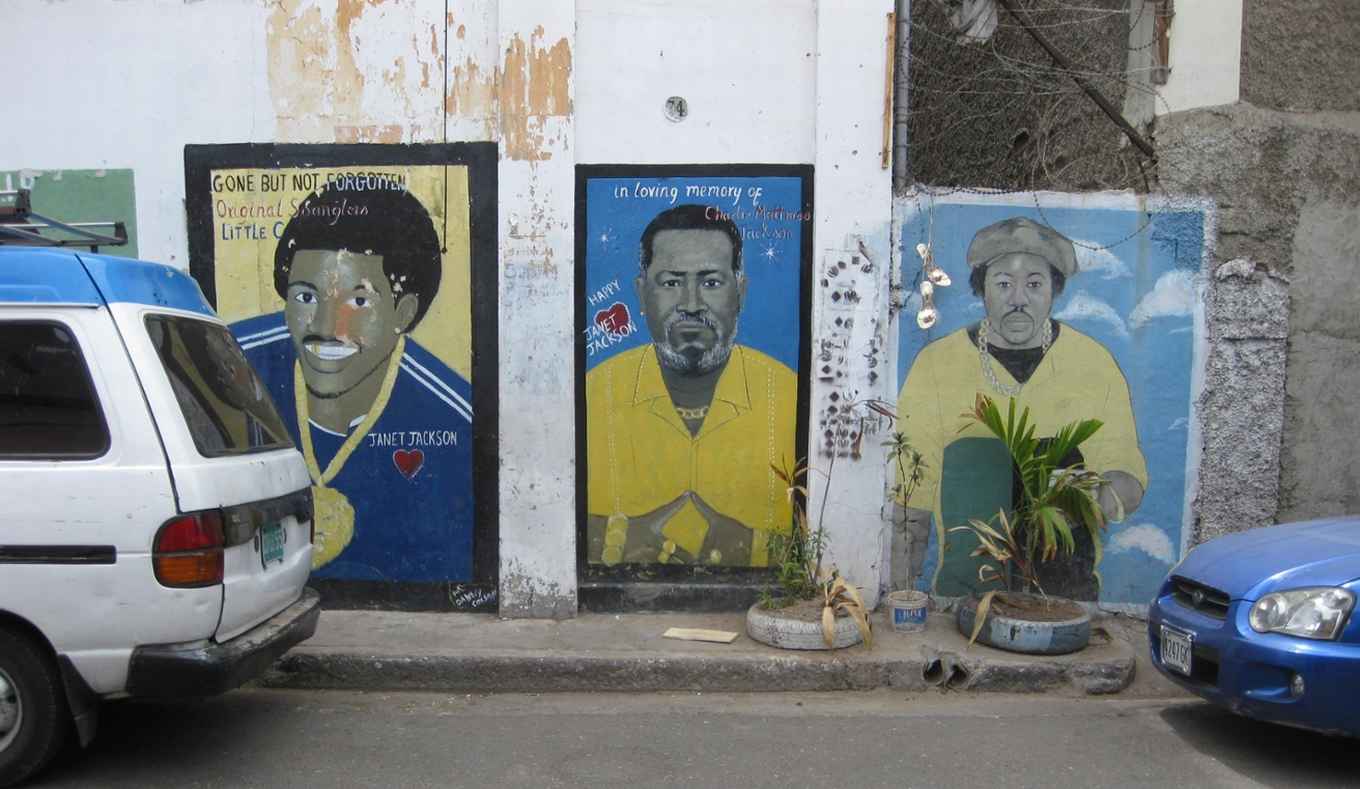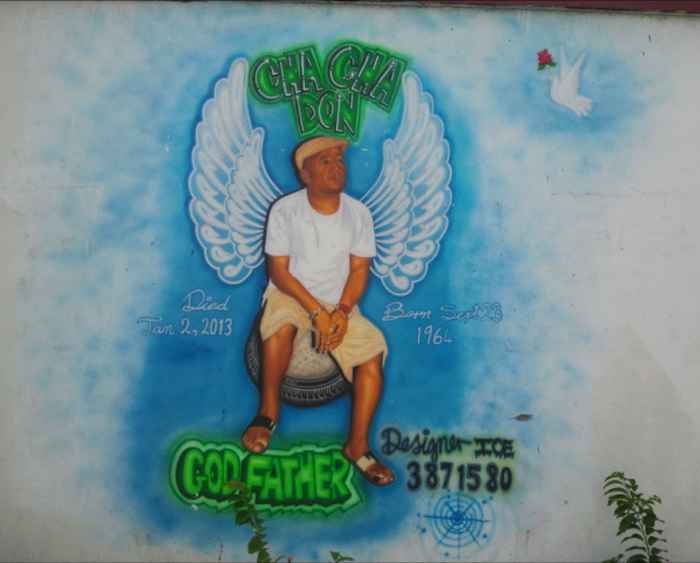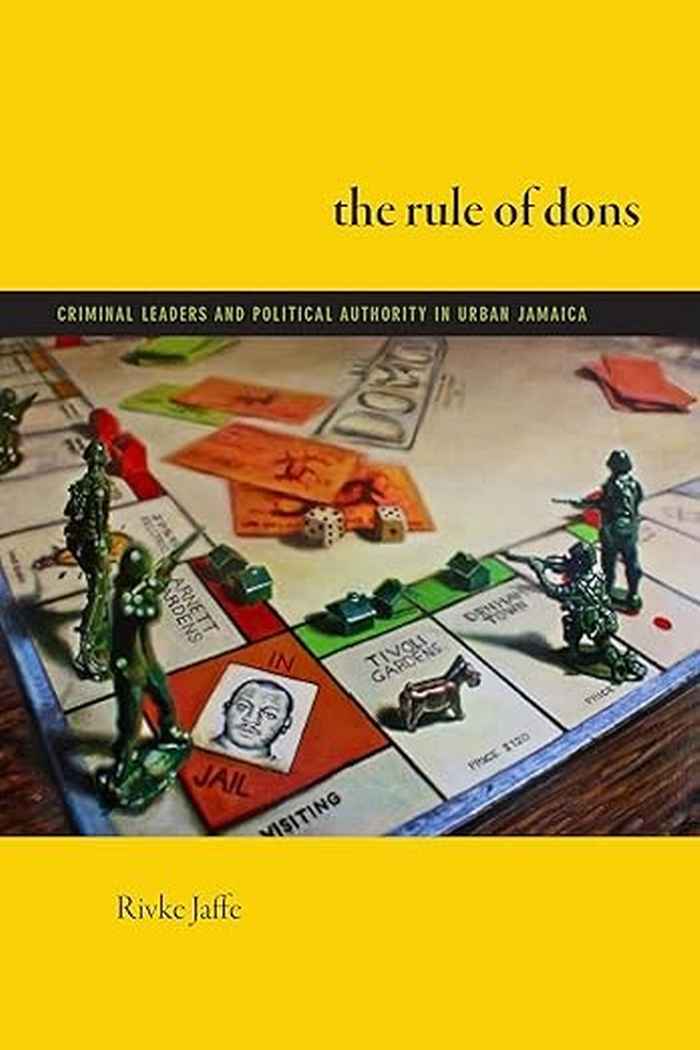How criminal leaders gain political legitimacy
16 June 2025

Jaffe's work shows how dons in Jamaica, leaders based in disadvantaged urban neighbourhoods, who are often involved in illegal activities, become to be seen as legitimate leaders by residents of their communities. In The Rule of Dons, Jaffe shows how these leaders’ authority is shaped both in and beyond the state: their successful claims to authority involve embodying an outlaw persona that stands outside of the political establishment, while also connecting strategically to state institutions. ‘The fact that dons are willing to punish people physically is what makes them attractive to certain people.’
From environmental issues to criminal leaders
Rivke Jaffe first set foot on the Caribbean island in 2000, because Haiti was too dangerous, according to her supervisor. Initially doing anthropological research on urban pollution, she soon took an interest in Jamaica’s political landscape. ‘My environmental research involved spending a lot of time in low-income urban areas, where I learned about dons. I saw how these criminal leaders played an important political and governance role. From that interest in their urban leadership function, I developed a larger research project.’
No concern for the poor
Jaffe’s research focuses mainly on the Jamaican capital of Kingston. ‘The impact of dons varies from one district to another’, Jaffe says. ‘Downtown Kingston is where low-income residents live. Many of them feel that the government only cares about wealthier light-skinned Jamaicans, who live in Uptown Kingston. Local criminal leaders are able to assume a leadership role in Downtown neighborhoods by providing residents with public goods and governance services. Because they come from disadvantaged neighbourhoods themselves, residents often see dons as more truly representative than elected politicians, who only come around when it’s election time.’
Recognition of leadership
Exactly how leadership works is the focus of Rivke Jaffe's book. ‘Political authority depends on recognition of your right to rule by others – both by those over whom you seek to rule and by other rulers. You can't rule solely or primarily on the basis of coercion, this is not a form of rule that you can maintain for decades. How does that process of recognition work, how does dons’ power – that is, their ability to get others to obey them – come to be seen as legitimate?’
Trump, Bolsonaro and Putin
Balancing an autocratic form of rule with an established democratic order – operating outside the law while also enforcing the law – is part of the dons’ appeal for many people. ‘Dons can resort to violence to punish those who they see as threatening the local order, from thieves to rapists. Residents see this as a more effective form of protection than that provided by the police. This makes them attractive as leaders’, Jaffe says. In addition, dons emphasise themes such as the public good, community, and equality. Values that are also resonate with democratic political systems.
'This form of leadership – both within and outside the law – can also be recognized in formal state leaders such as Trump, Bolsonaro, and Putin. Politicians who go all out to win elections, only to actively undermine the rule of law once they are in power. While these are political leaders who came up through the democratic system, their appeal to significant numbers of citizens also ties to their willingness to resort to autocratic forms of rule, Jaffe explains.

Popular culture
She discovered that popular culture in Jamaica plays an important role in making dons’ rule feel legitimate. ‘Memorial murals, street dances and music depict dons as heroes. Within low-income neighbourhoods, residents grow up seeing dons portrayed as community leaders, and feeling their presence in the neighbourhood.’
King's Day
In the Netherlands too, popular culture plays an important role in how we come to see leaders as legitimate, Jaffe says. 'Take the Royal Family. The faces of monarchs appear on our coins and stamps. When the Dutch national football team plays an international match, people sing the Wilhelmus. And then there is our national holiday King's Day. Drunken partygoers might not immediately associate this celebration, where everyone dresses in orange, with King Willem-Alexander, but it remains a national ritual in honour of the Royal Family. And so these forms of visual culture, music and street parties make us more willing to see it as normal and natural that we have a King as a leader. – a pretty powerful, very rich person who has not been democratically elected.’
The Rule of Dons shows how authority is shaped both within and beyond the law. Rivke Jaffe emphasises again: ‘The situation in Kingston shows that power that at first glance seems illegally obtained is not always experienced as illegitimate. You can recognize this this important of what authority feels like within official political systems too, even though such governments might suggest that leadership has more to do with the rational pursuit of political and economic interests. Many voters might secretly long for that strongman or strongwoman who promises to save us.’
On Friday June 27, the Centre for Urban Studies will organise a book launch for The Rule of Dons (Duke University Press, 2024), the latest monograph by Rivke Jaffe.
After an introduction by Rivke, Marlies Glasius, professor of International Relations at the University of Amsterdam and author of Authoritarian Practices in a Global Age (Oxford University Press, 2023), will reflect on the book’s insights.
